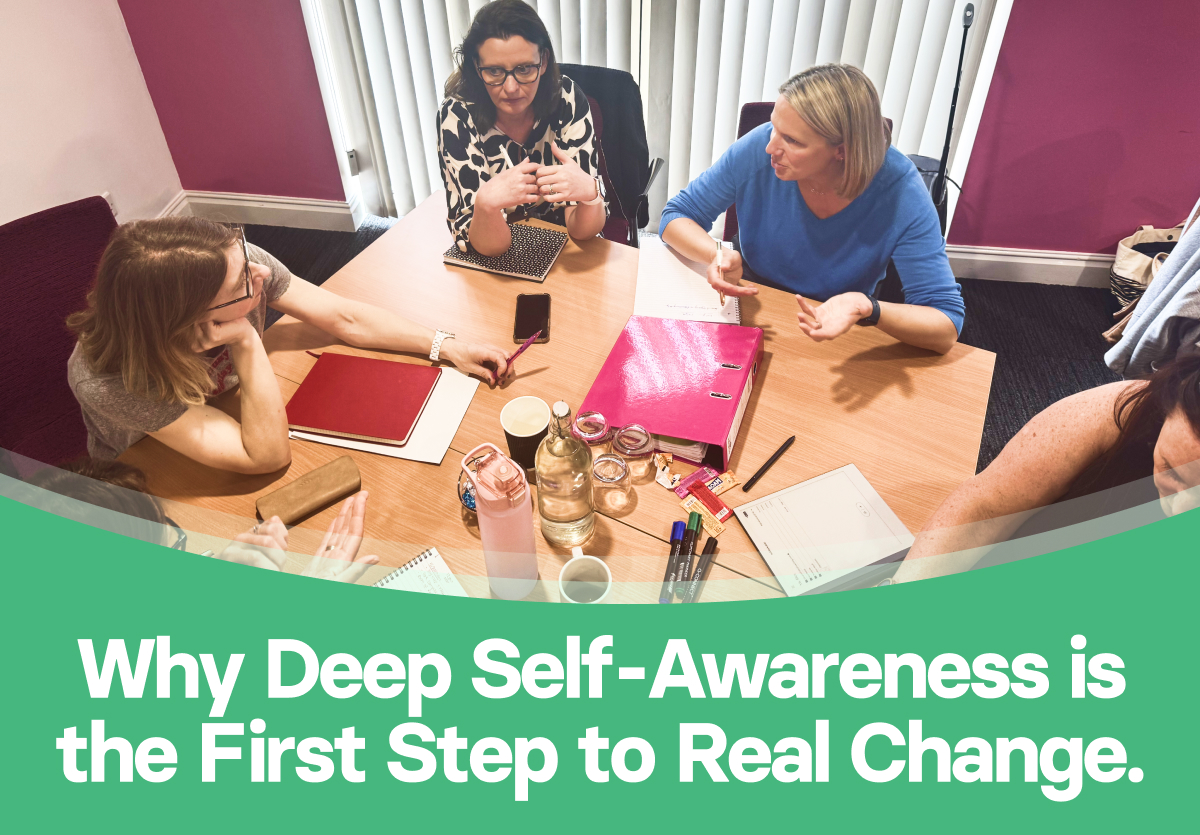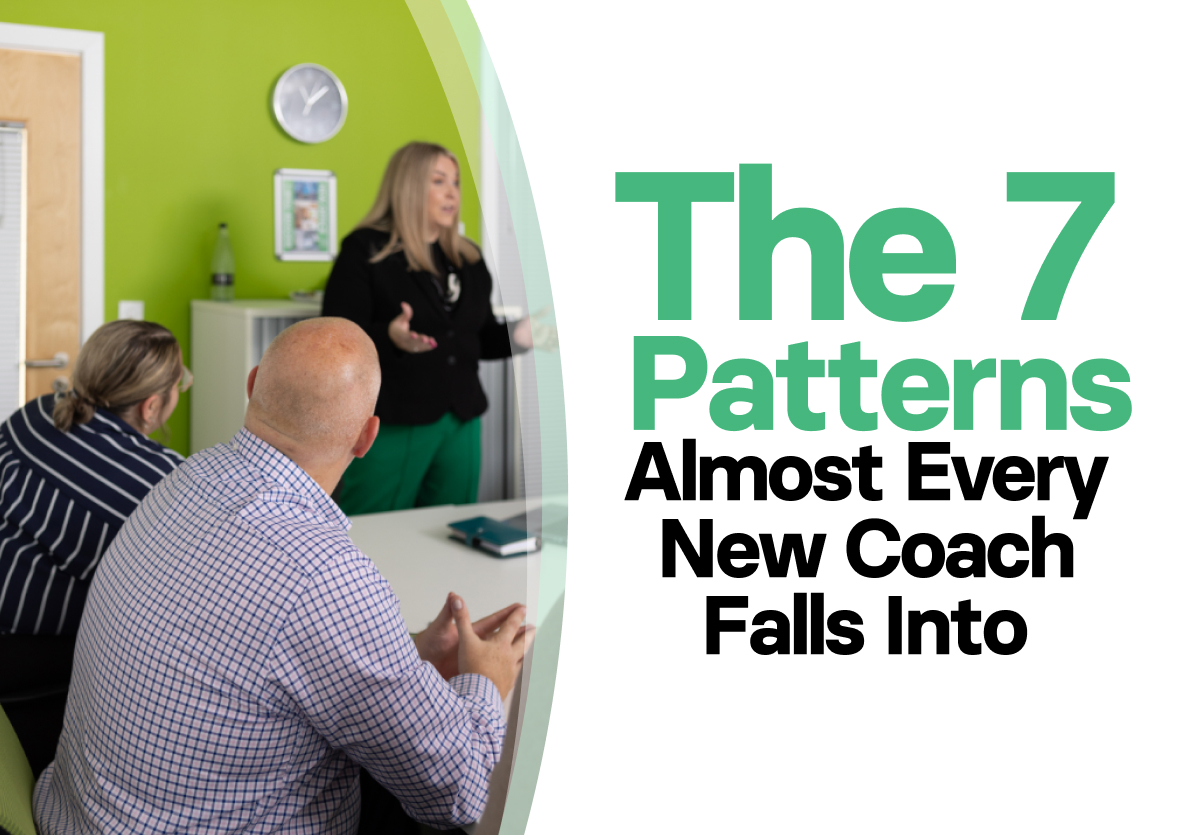When my parents decided to redecorate my childhood bedroom, they made one crucial mistake.
They underestimated the woodchip.
If you’ve ever had the misfortune of trying to remove this stubborn, textured wallpaper, you’ll understand. It’s spiky, it clings for dear life, and it hides what’s underneath.
Armed with a scraper and a steamer, they began the process with energy and enthusiasm. That enthusiasm didn’t last long. Every strip they removed revealed another surprise, more layers. More patterns. More history. Some wallpaper was so old it crumbled as they touched it. And eventually, beneath all the layers, they reached the wall itself. Cracked. Fragile. Exposed.
What started as a simple refresh became a full excavation.
And that, in a nutshell, is what deep self-awareness looks like.
Most People Think They’re Self-Aware
And they are, on the surface.
They know how they react under pressure.
They know what version of themselves wins approval.
They know how to sound confident, even when they’re full of self-doubt.
They know how to wear the mask.
But self-awareness isn’t just about recognising your habits or naming your emotions. That’s like being aware of the woodchip. The outer layer. The one you’ve come to accept as “just who I am.”
True self-awareness requires something much harder:
The willingness to scrape away what’s been layered on over time.
To sit with what you find.
And to rebuild from a place that’s honest, not performative.
The Masked Self vs. The Real You
At Paseda360, we talk a lot about the Pretender Roles, those adaptive selves we create to survive in the world. The Perfectionist. The People Pleaser. The Persecutor of Self. The Persecutor of Others. Each role has its roots in past experience, and each becomes a form of protection.
Over time, we start to believe those masks are who we are.
We build lives, careers, relationships from behind them.
We coach from behind them.
But those roles aren’t you. They’re responses.
Clever, unconscious responses to an environment where you once felt you had to be something other than yourself to be accepted, valued, or safe.
To access the real you, the one who isn’t ruled by protection or performance, you need deep self-awareness.
And that takes work.
The Gift of Discernment
One of our coaches, Sam, recently described a moment with a potential client. The client had been weighing up her offer against a £99 “10x your productivity in 10 days” kind of course, the stack-it-high, sell-it-cheap variety that promises transformation at breakneck speed.
Sam’s response was simple, and brilliant:
“The gift of discernment.
The ability to tell what’s ADHD, what’s a mask, and what’s a limiting belief.
That’s what you get when you build deep self-awareness.
That’s when you begin to honour yourself in the process.”
That’s it.
That’s the shift.
Because without discernment, everything gets muddled.
A client might think their procrastination is laziness, but it’s actually trauma response.
They might label their people-pleasing as kindness, when it’s really fear of rejection.
They might see a panic spiral and assume they’re broken, when it’s their nervous system doing what it was wired to do.
With discernment, there’s space.
With space, comes choice.
And with choice, comes freedom.
Why We Start Here
In the PASEDA Method, deep self-awareness is the first principle. We start here for a reason.
Not because it’s easy.
But because everything that follows depends on it.
If you try to coach others without knowing your own patterns, you’ll end up dancing around theirs. You’ll collude. You’ll rescue. You’ll avoid the messy middle because it triggers something in you.
But when you’ve done the scraping yourself, when you’ve looked at the cracks, filled them, and consciously chosen who you want to be, you stop coaching from performance.
You coach from truth.
And that’s the kind of coach who changes lives.
The Difference That Can’t Be Faked
This work isn’t sexy. It doesn’t lend itself to Instagram quotes or quick-fix promises. You can’t sell it in a “before and after” reel.
But the people who go there?
They lead differently.
They coach differently.
They live differently.
They become the kind of people who can hold space when a client says,
“I don’t know who I am without the doing.”
“I’ve never really looked at this before.”
“I’ve been pretending for years.”
Because they’ve been there themselves.
They’ve stripped back their own layers.
And they’re still standing.
A Different Kind of Coaching
At Paseda360, we’re not interested in producing surface-level coaches who rely on models and scripts. The world already has enough of those.
We’re here to train coaches who understand the psychology, biology, and behavioural layers that shape human experience.
Coaches who can spot the difference between a goal and a wound.
Between a pattern and a pretence.
Between what’s true and what’s survival.
That starts with self-awareness. Not the kind you get from a personality quiz—but the kind that makes you uncomfortable before it sets you free.
Final Word
So if you’re feeling the call to scrape away the surface…
If you’ve sensed there’s more to you than the version you’ve learned to perform…
If you want to coach others without hiding from yourself…
Start with awareness.
Not just of the habits and the highlights, but of the layers, the armour, and the stories you didn’t realise you were still living.
That’s where the work begins.
And that’s where everything changes.
Join the nº 1 coaching community on Facebook here







